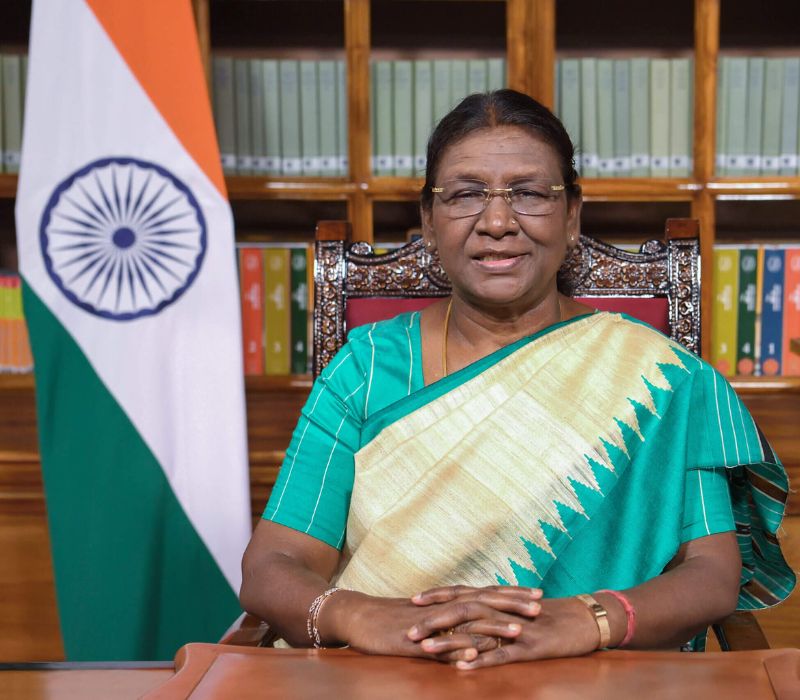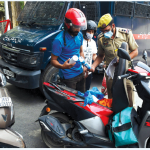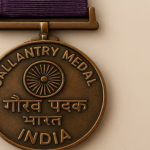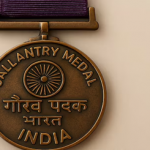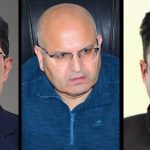Jammu, Aug 14: President of India Draupadi Murmu, on the eve of the 79th Independence Day, addressed the nation, reflecting on India’s journey since independence and calling upon citizens to work together in building a strong, self-reliant, and inclusive nation by 2047.
In her address, President Murmu paid rich tribute to the freedom fighters whose sacrifices led to India’s independence on August 15, 1947. “As we salute the Tricolour, we pay homage to all those who dreamed of a free India and made that dream a reality,” she said.
She emphasized India’s democratic foundation, underscoring the significance of universal adult franchise from the very beginning of the Republic. “India is rightly regarded as the mother of democracy,” she noted, pointing to ancient traditions and the enduring strength of democratic institutions.
Reflecting on the trauma of Partition, President Murmu remembered the victims of the violence and displacement, observed earlier in the day as Vibhajan Vibhishika Smriti Diwas. “We pay our respects to those who suffered during one of history’s greatest upheavals,” she said.
Highlighting the nation’s progress, the President noted that India has emerged as the fastest-growing major economy, recording a GDP growth rate of 6.5% in the last fiscal year. “Despite global headwinds, India’s economy remains robust, thanks to sound policies and the hard work of our people,” she said.
She pointed to declining poverty levels, increased investment in welfare, and narrowing regional disparities as signs of inclusive development. “The States once considered economically weaker are now catching up with the front-runners,” she said.
Key infrastructure developments were cited, including highway expansion under the Bharatmala Pariyojana and modernisation of Indian Railways. The completion of the Kashmir Valley rail link was called a “historic milestone” that will enhance trade and tourism in the region.
President Murmu highlighted urban transformation through the AMRUT mission, metro expansion, and Jal Jeevan Mission, which is providing clean drinking water to rural households. “Basic amenities are not privileges but rightful claims of every citizen,” she stressed.
The President praised Ayushman Bharat as the world’s largest healthcare assurance programme, now covering over 55 crore people, including all senior citizens above 70 years, irrespective of income.
She also lauded India’s global leadership in digital innovation. “India now accounts for over half of all digital transactions worldwide,” she noted, adding that initiatives like Direct Benefit Transfer have made welfare delivery more transparent and efficient.
On artificial intelligence, President Murmu said the government’s India-AI Mission will help build domestic capabilities and tailor solutions to the country’s specific needs. “We aspire to become a global AI hub by 2047,” she said.
Calling youth, women, and marginalised communities the “pillars of India’s future,” President Murmu hailed reforms that are expanding opportunities and unlocking potential.
She praised the National Education Policy for aligning learning with both values and skills, and pointed to rising employment and entrepreneurial opportunities. India’s space programme, she said, is witnessing remarkable achievements—highlighted by astronaut Shubhanshu Shukla’s mission to the International Space Station and preparations for Gaganyaan, India’s first human spaceflight.
On women’s empowerment, the President said: “Our daughters are breaking barriers across sectors, including in defence and security.” She cited India’s representation in international chess, where both a 19-year-old and a 38-year-old Indian woman were finalists in the FIDE Women’s World Cup, as a symbol of generational excellence.
She described the Nari Shakti Vandan Adhiniyam as a landmark step that turns the vision of women’s representation into reality.
The President also highlighted targeted efforts to uplift Scheduled Castes, Scheduled Tribes, and other historically disadvantaged groups. “They are now shedding the tag of marginalisation and stepping into new roles in India’s development journey,” she said.
President Murmu strongly condemned the recent terror attacks in Jammu and Kashmir, calling them “cowardly and inhuman.” She assured the nation that such acts would be met with unwavering resolve.
“India responded with firmness and clarity,” she said, referring to Operation Sindoor, a coordinated effort by the armed forces to dismantle terrorist infrastructure across the border. “It stands as a testament to our preparedness and strategic strength.”
She noted that India’s unified response — including cross-party delegations reaching out to the international community — demonstrated national consensus. “India does not initiate aggression, but will not hesitate to defend its citizens,” she declared.
She also praised the success of indigenous defence manufacturing, saying Operation Sindoor had proven the strength of Atmanirbhar Bharat in national security.
President Murmu urged citizens to adopt more sustainable lifestyles in the face of climate change. “To protect our environment, we must reimagine our relationship with nature—our rivers, forests, and wildlife,” she said.
Addressing corruption, she invoked Mahatma Gandhi’s words: “Corruption and hypocrisy ought not to be inevitable products of democracy.” She called on all citizens and public servants to uphold the highest standards of integrity.
Concluding her address, the President expressed confidence in India’s future. “With the momentum we have gained, and with the spirit of unity, we are well on our way to becoming a developed nation by 2047.”
She extended her Independence Day greetings to the armed forces, police, judiciary, civil servants, Indian diplomats abroad, and the Indian diaspora. “Let us move forward together, building a stronger, more inclusive and self-reliant India,” she said.



